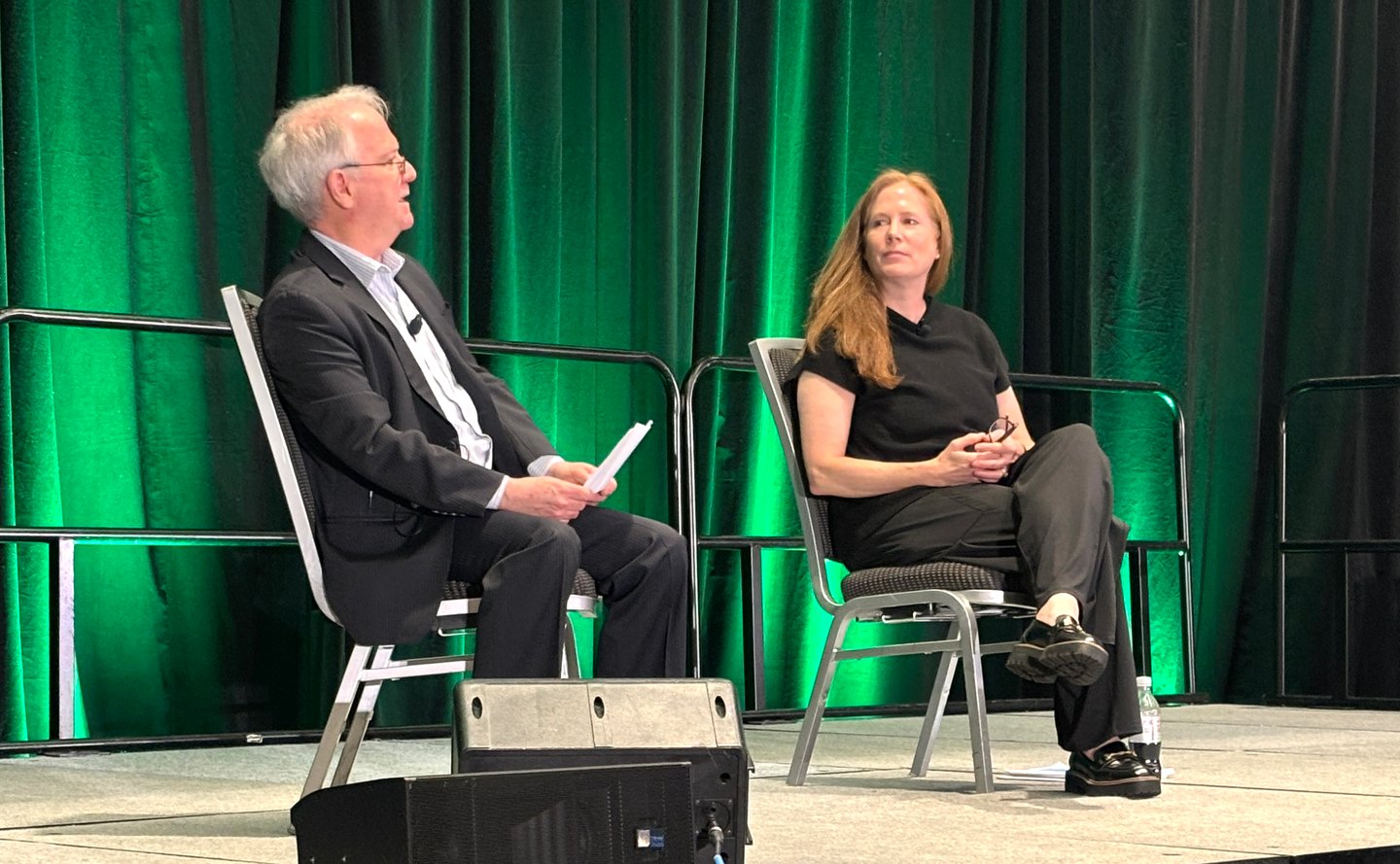Canada’s new grocery code adjudicator lays out timeline for implementation
Karen Proud, the new president and adjudicator of the Grocery Sector Code of Conduct took the stage at the Grocery & Specialty Food West trade show in Vancouver this week, to talk about what’s next for the code and to squash misinformation surrounding it.
“One of the biggest questions I get is, ‘So when is the code going to be operational? When are you going to turn on that switch and that code is in place?’” Proud told attendees of the event, presented by the Canadian Federation of Independent Grocers.
Proud, previously CEO of Fertilizer Canada, was tapped for the role of code adjudicator in early January and officially took charge of overseeing its implementation on March 17.
Recognizing that not everyone is at the same state of readiness, Proud said her office would be taking a phased approach to implementing the industry-led, voluntary code. The first phase, between now and June 1, will be “building the foundation of the house” said Proud. This includes developing and putting in place the tools, infrastructure and processes needed, such as setting up the office and getting a website, which will serve as a hub of information on all things code, up and running.
READ: Catching up with incoming grocery code adjudicator Karen Proud
Then, “come June we’re really going to focus on that educational piece,” she explained.
Education and guidance are a core mandate of the office. While most in the grocery industry are now familiar with what the code of conduct is, fewer understand all its elements.
“The code has been written in such a way as not to interfere with your business, so it’s not prescriptive, it’s not a regulation,” explained Proud, adding that broad principles within the code can make it difficult to understand exactly how to apply it in day-to-day business.
To help with this, Proud said a guidance document for the sector should be completed within the next few months. “We’re not rewriting the code, that’s not the intent, but we do need to put a little bit of meat on the bones in respect to how it works in certain situations.”
During this phase Proud said her office would be encouraging businesses to change their systems and processes so they are in line with the principles and elements of the code “before we switch to 'enforcement.' And I use enforcement in air quotes because this is a voluntary code,” she said, adding that at a certain point the dispute resolution mechanism with be turned on and the office will be ready to start hearing formal issues as they arise.
“Come January 1, 2026, it’s really full implementation of the code,” said Proud. “The most important message that I have for you today is please work with the office of the Grocery Code of Conduct … We want to hear from you. We cannot help you if we do not hear from you.”
Currently the office of the Grocery Sector Code of Conduct is funded from federal and provincial governments, which have seeded money to get the office up and running. But the intention, Proud explained, is that the grocery code of conduct will be funded by the industry, while operating independently from it.
Proud also took the opportunity to clear up “a lot of misinformation” circulating about the function of her role and that of her office.
“We do not impose penalties,” said Proud, nor regulate or control retail pricing or replace existing or regulatory systems.
“And we do not intervene in negotiations between retailers and their suppliers unless it relates to issues specific to the code,” said Proud. “Our main focus is to support the adoption of the code to ensure that it is fairly applied.”




